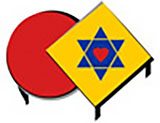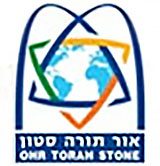
Table to Table, Website and Outreach, Ra’anana, Israel
Table to Table is Israel’s largest food rescue organization, and is growing rapidly. Each week it rescues and redistributes an average of ten thousand meals and thirty tons of produce and dairy products. It gathers food from catered events, corporate cafeterias, army bases, farms, and food manufacturers. Targum Shlishi funded the development of a new website for Table to Table with the goal of creating a site that is more user-friendly, provides better access to information for the organization’s volunteers and donors, and streamlines the donation and volunteer processes. Targum Shlishi’s funding also supports a fundraising effort for Table to Table to reach out to Evangelical Christians to help with the organization’s mission to address the paradox of growing hunger and large-scale food wastage in Israel. In addition, the organization continues the initiative originally funded by Targum Shlishi to distribute fresh produce to Jewish and Arab children in Jaffa. Through Table to Table, Targum Shlishi also helped to provide food during Passover to residents of Ashdod.

Aid to Sderot Residents, Sderot, Israel
Sderot, located just two miles from the Gaza Strip, for years has been under continuous bombardment from Kassam rockets fired by Hamas militants. The city has a population that includes 2,300 elderly, more than half of whom (1,400) require the care and outreach of the Social Welfare department. Of those men and women, 850 are in need of special nursing attention. It is a struggle to provide Sderot’s residents with adequate services. Emergency home equipment sets—a battery-operated lamp and a transistor radio (to monitor security alerts and raise morale)—are a high priority for Sderot’s elderly, especially since rocket offenses often lead to power outages. Targum Shlishi funds have helped in the purchase of sixty sets. Also among Sderot’s population are younger residents returning to civilian life after serving in the Israeli Army. Since traditional monetary sources such as college scholarships do not cover these students’ exam fees and educational programs, Targum Shlishi funds are helping forty-five students embarking on a path toward a college degree or pursuing a trade.
The Rosh Pina Mainstreaming Network, Kaleidoscope Initiative: Horfesh Community Learning Center and Field of Dreams, Horfesh and Maghar, Israel
Targum Shlishi continues its support of two of Rosh Pina’s programs. The Kaleidoscope Initiative was developed in 2004 to serve Druze villages characterized by a strong commitment to Israel, yet very low socio-economic conditions and a large percentage of at-risk youth. In 2007 Rosh Pina plans to build on its success with the Kaleidoscope Initiative by further developing its existing programs and expanding outreach. It will continue the Horfesh Community Learning Center, which provides special education services for children in Horfesh, a Druze village located in the Western Galilee. The Lower Galilee Druze village Maghar will also continue to benefit from the Field of Dreams program to help at-risk children develop positive self-esteem, good interpersonal skills, improved academic achievement, and overall improved well-being. In addition, the Kaleidoscope Initiative will also begin programming in Pekiin, a Druze village in the Western Galilee whose Education Authority has requested programming similar to that implemented in Maghar.

Midreshet Lindenbaum, David Project Fellows Program, Jerusalem
Articulate students who understand the history and politics of the Middle East are needed on U.S. college campuses. In response to this need, an innovative program at Israel’s Midreshet Lindenbaum in Jerusalem was inaugurated during the 2006-07 academic year to prepare high school graduates for the challenges they will face as Jewish college students committed to Israel. A dozen students were selected through a competitive process to take part in a year-long study program designed to prepare them as leaders on campus in the effort to present Israel in a fair and accurate light. The David Project Fellows Program exposes students to top Israeli lecturers from academia, the military, and the business world. The syllabus includes an in-depth review of modern Jewish and Israeli history as well as topics that are “hot-button” issues on campuses, such as post-colonial thinking, human rights, and dealing with the media. “The David Project has opened our eyes to many topics, allowing us to explore many areas which will certainly be essential when we represent Israel on our college campuses. From studying Israeli culture to learning about the Islamic world, the David Project is providing us with important foundations in Israel advocacy,” says Laura Chiel, a student in the David Project who will attend the University of Pennsylvania.

